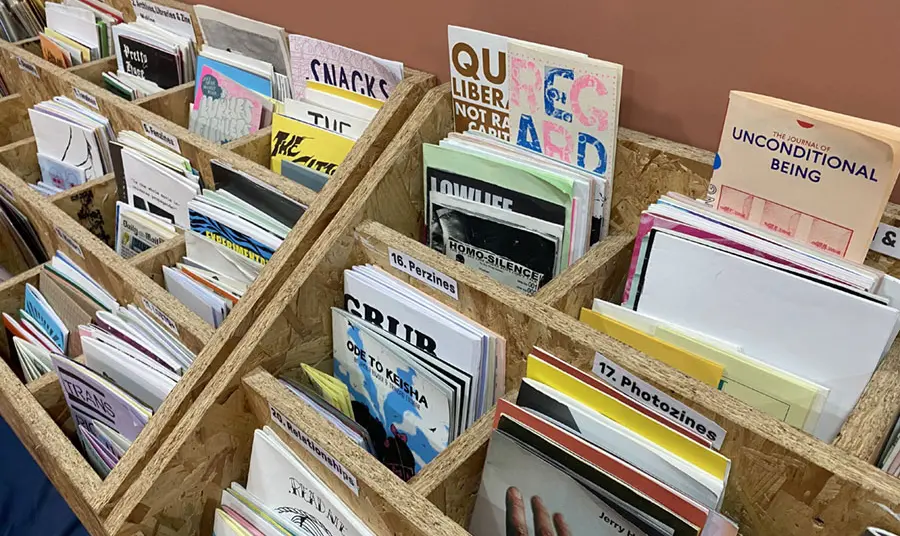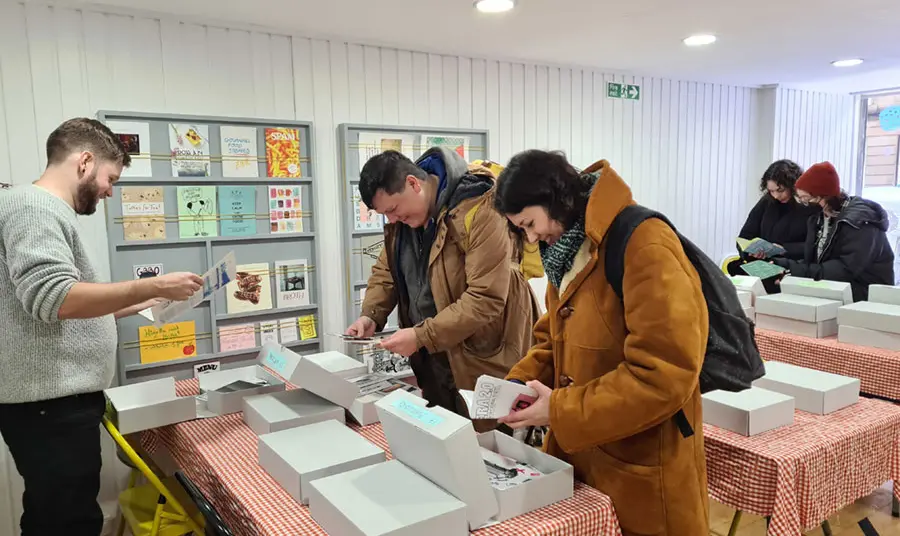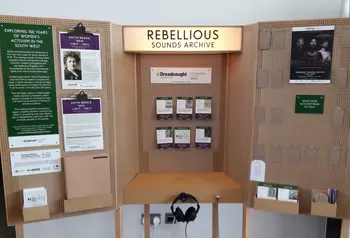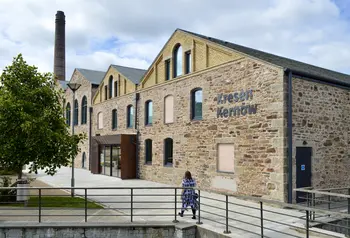Preserving the unique experiences and advice of people from the past

They might be ephemeral, but zines are a rich source of cultural heritage.
Before social media and online communities, zines were a way to share interests and exchange information – from riot grrrls and science fiction fans, to explorations of sexuality and resources for reproductive health.
“Often zines are the only record that we have of a particular event, community or subculture,” says LD, Director of the Glasgow Zine Library.
“Zines circumvent traditional publishing standards. They’re a way that people can talk about their experiences in an unedited and sometimes anonymised way. It’s important that we have a process for preserving them, learning from them and also appreciating the experiences people have had and the things they’ve made.”
What is a zine?
It’s a self-made publication created and distributed cheaply, usually in small quantities. It can be hand-written, typed, drawn, cut-and-pasted or almost anything else you can imagine.

What is the Glasgow Zine Library?
It’s home to over 3,500 zines – and growing every day – and since summer 2023 has been operating from a space on Albert Road. It’s somewhere people can come to read, and make, zines.
There’s no ID required to explore the collection. The tea and biscuits are free. So are the zine-making tools, such as binding equipment, guillotines and computers with Adobe programmes installed. Printing and photocopying are charged at cost.
Nic, Archives and Collections Manager, says: “It’s not like a lot of places. You can just come and spend the day reading and making and there’s no pressure to spend any money. I think that’s a valuable thing to offer, especially right now.”
As well as hosting its own programme of events, the Library invites the community to use the space too, including for banner and placard making workshops and reading groups.
How has our funding helped?
Our £62,188 grant has supported the Library to hire and train staff, acquire more zines and share the collection and knowledge they’ve built with others.
Nic says: “It’s been amazing. We’ve been able to travel around Glasgow and take parts of the collection to other libraries, to schools and introduce zines to people who might not have interacted with them before. They look at our zines and we make zines together.
“We’ve also hosted training sessions with different organisations sharing the inclusive cataloguing system we’ve developed.”
Our funding has helped establish a budget to pay zine makers too, including commissioning new work to fill gaps in the collection, such as from trans publishers and those from diverse ethnic communities.
It is also supporting a project to digitise and make zines available online.

Why is it important?
“Zines really connect people to each other, and I think it can help people to read about things that might feel difficult to talk about,” LD says.
“For example, someone who’s exploring their gender identity can come in and see Trans Masc History – which is a great zine – and look at trans people throughout history and realise they’re not alone. They might not know anyone who’s experiencing what they’re experiencing, but they can read a zine and see that these people have always existed and read their thoughts and feelings. It’s really important that we preserve these people’s stories.”
Reflecting on the use of zines over the decades as a way to share ‘dangerous’ or illegal information, and considering restrictions to reproductive healthcare that women in America face today, LD says: “We still need a way to connect to each other that doesn't have cookies or browser data, or a name or address on it, or any way to trace who's made it or who's accessing it.”
How can you get involved?
- drop in on Fridays and Saturdays or for the monthly Wednesday zine making workshops
- follow the Glasgow Zine Library on Instagram, X/Twitter and Facebook or sign up to its newsletter to learn about opportunities such as commissions
- donate your own zine or suggest an acquisition


